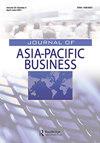Impact of Workforce Flexibility on Operating Costs: Empirical Evidence from Healthcare
Q3 Business, Management and Accounting
引用次数: 0
Abstract
ABSTRACTWith increasing nursing shortages, workforce flexibility is frequently used in hospitals. Commonly referred to as “mobility flexibility” or “floating,” this type of workforce flexibility cross-trains and re-deploys nurses to the short-staffed hospital units. Using panel data across three years, we empirically show that mobility flexibility has a U-shaped effect on operating costs. It is very helpful in reducing costs at first. However, beyond an infliction point, the benefit of mobility flexibility diminishes. Managers should encourage limited employee movement outside their units and provide a mechanism to capture the knowledge gained during their re-deployments.KEYWORDS: Health care servicesworkforce flexibilitynursingcross-training AcknowledgmentsThe authors would like to thank Dr. Luv Sharma for his valuable contributions to this project.Disclosure statementNo potential conflict of interest was reported by the author(s).Notes1. We are unable to identify the state that is dropped from the final dataset, because of deidentification by ANA associates.劳动力灵活性对运营成本的影响:来自医疗保健的经验证据
摘要随着护理人员短缺的加剧,医院经常采用灵活的人力资源。通常被称为“流动性灵活性”或“浮动”,这种类型的劳动力灵活性交叉培训和重新部署护士人手不足的医院单位。利用三年的面板数据,我们实证地表明,出行灵活性对运营成本具有u型影响。这对降低成本很有帮助。然而,超过施加点,机动性灵活性的好处就会减少。管理人员应鼓励员工有限度地在单位外流动,并提供一种机制,以获取在重新部署期间获得的知识。关键词:卫生保健服务、劳动力灵活性、护理交叉培训感谢作者感谢Luv Sharma博士对本项目的宝贵贡献。披露声明作者未报告潜在的利益冲突。由于ANA相关人员的去识别,我们无法识别从最终数据集中删除的状态。
本文章由计算机程序翻译,如有差异,请以英文原文为准。
求助全文
约1分钟内获得全文
求助全文
来源期刊

Journal of Asia-Pacific Business
Business, Management and Accounting-Business and International Management
CiteScore
2.50
自引率
0.00%
发文量
17
期刊介绍:
Present circumstances underscore the need to improve the understanding of conducting business with and within the Asia-Pacific countries. The Journal of Asia-Pacific Business™ provides a blend of cutting-edge knowledge and practical applications on business management and marketing strategy. In the Journal of Asia-Pacific Business™, you will find articles and feature sections that provide a pragmatic view of the business environment in this dynamic region. This essential resource offers readers a good blend of descriptive, conceptual, and theoretical articles dealing with current topics.
 求助内容:
求助内容: 应助结果提醒方式:
应助结果提醒方式:


